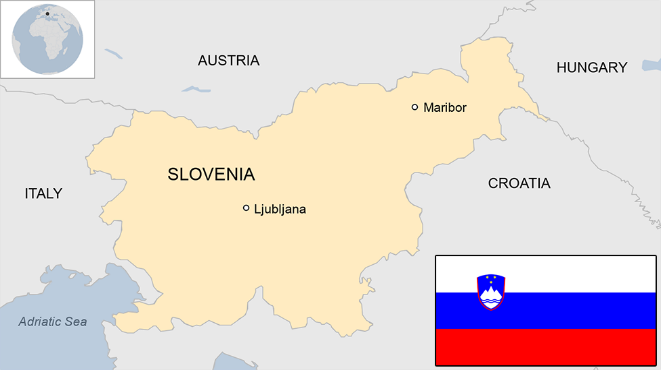Slovenia

- 06 Aug 2025
In News:
Slovenia has announced a complete ban on the import, export, and transit of weapons to and from Israel in response to Israel’s military actions in Gaza. This makes it the first European Union (EU) member state to enforce a blanket arms embargo on Israel.
Context and Diplomatic Stand
- Slovenia has frequently criticized Israel for alleged atrocities in Gaza.
- In June 2024, Slovenia’s parliament recognisedPalestinian statehood, joining Ireland, Norway, and Spain.
- In July 2024, it barred two far-right Israeli ministers from entering the country, citing “incitement of violence” and “genocidal statements.”
- Although Slovenia’s arms trade with Israel is minimal, the decision carries symbolic diplomatic weight, intended to pressure Israel amid growing international condemnation.
Other European countries have taken partial measures:
- UK (2024): Suspended export of some weapons that could breach international law.
- Spain (2023): Halted arms sales.
- Netherlands, France, Belgium: Tightened regulations or faced legal challenges, but none imposed a total embargo like Slovenia.
Slovenian Prime Minister Robert Golob emphasized that Slovenia would act unilaterally in the absence of collective EU action, accusing the EU of disunity in addressing the humanitarian crisis in Gaza.
About Slovenia
- Location: Central Europe; formerly part of Yugoslavia.
- Capital: Ljubljana.
- Borders: Austria, Hungary, Croatia, Italy; coastline along the Adriatic Sea (Gulf of Venice).
- Memberships: Joined EU and NATO in 2004; uses the Euro.
- Physical Features:
- Alpine Highlands (~40% of territory) – includes Julian Alps, Karavanke, Kamnik-Savinja Alps. Highest peak: Mount Triglav (2,864 m).
- Karst Plateau – globally renowned for caves, sinkholes, underground rivers.
- Subpannonian Plains – fertile alluvial soils; rivers Sava, Drava, Mura drain toward the Danube.
- Slovene Littoral – 47 km coastline; major port Koper.
